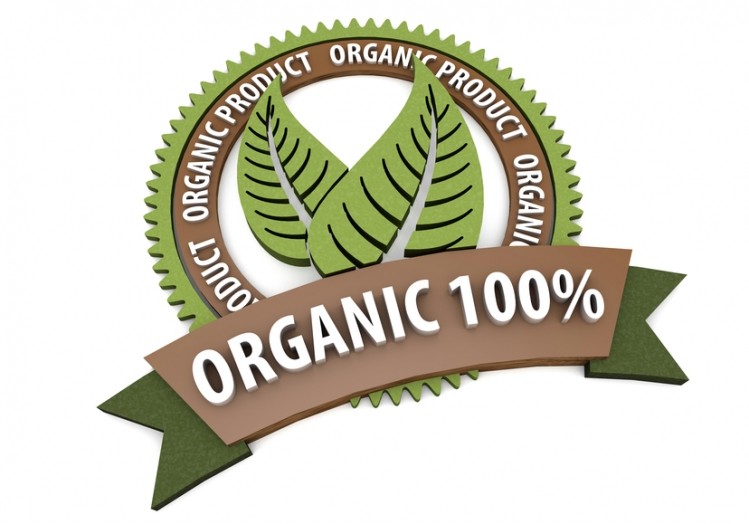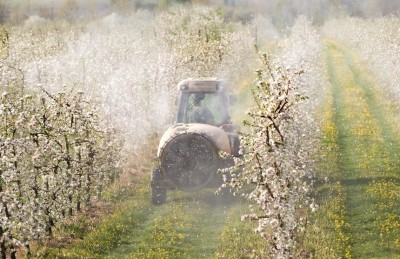Organic consumption associated with lower cancer risk: French study

In a population-based study of 68 946 French adults from the NutriNet-Santé prospective cohort, a “significant reduction” in the risk of certain types of cancer was observed among high consumers of organic food, compared to infrequent consumers.
Researchers at the Sorbonne Paris Cité Epidemiology and Statistics Research Centre (INRA, Inserm, University Paris 13 and CNAM) conducted the epidemiological study. The researchers, led by Dr Julia Baudry, asked participants to report their intake of organic foods across 16 product categories. This was then translated into an organic scorecard, with scores ranging from 0-32, to distinguish frequent and infrequent organic consumers. The cohort was followed for seven years to investigate the incidence of cancer.
During the follow up period, between 2009 and 2016, 1,340 new cancer cases were recorded and validated on the basis of medical records. A 25% decrease in cancer risk across all types was observed among "regular" consumers of organic foods compared to more casual consumers. This association was particularly marked for lymphoma, when organic consumers had a 76% risk reduction. Lower risk of breast cancer in postmenopausal women was also uncovered, with a 34% risk reduction among consumers with a high organic consumption score versus low.
Taking into account various risk factors that may affect this relationship (socio-demographic factors, diet, lifestyles and family history) did not change the results, the research authors claimed.
The study suggested that although further research is needed to confirm its findings, the promotion of organic foods could be an important public health measure to prevent cancer. “Promoting organic food consumption in the general population could be a promising preventive strategy against cancer,” they suggested.
What is the cause?
The study concluded that “one possible explanation” for the negative association between organic food consumption and cancer risk is that the prohibition of pesticide use in organic production methods results in lower contamination levels.
In 2015, the Agency for Research on Cancer classified certain pesticides, malathion and diazinon, as probably carcinogenic to humans, while tetrachlorvinphos and parathion were classed as possibly carcinogenic to people.
In a statement, INRA added: “Another possible explanation is that potentially higher levels of certain micronutrients (carotenoid antioxidants, polyphenols, vitamin C or more beneficial fatty acid profiles) in organic foods.”
The researchers suggested that attention should now turn to the “chronic effects of low-dose pesticide residue exposure from diet” as well as “potential cocktail effects” at the general population level.
Conclusions ‘overblown’?
The study has provoked widespread debate in scientific circles, with some researchers suggesting that it provides grounds for further examination and others claiming that its conclusions are far-fetched.
“This is a solid observational cohort study from France and one of the largest to look at organic foods and cancer risk. It has all the usual biases of observational studies,” Prof Tim Spector, Professor of Genetic Epidemiology at King’s College London, noted.
“The data is most convincing for non-Hodgkin lymphoma because two previous studies showed the same preventive effects. The data suggest (but do not prove) that eating organic plants low in herbicides and pesticides may modestly reduce risk of cancers. This should stimulate greater scrutiny of the safety of these widely used chemicals in our foods which could have effects directly or indirectly via our gut microbes.”
However, Prof Tom Sanders, Professor emeritus of Nutrition and Dietetics at King’s College London, was more sceptical. According to his assessment, although the study tried to adjust for known cancer risks “residual confounding is still likely”.
“This an observational study, not a controlled trial. The participants who reported eating organic food most frequently were more likely to be non-smokers, had a lower body mass index (less obesity) and drank less alcohol – all factors that would be expected to result in fewer cases of cancer in this group… Their conclusion, that promoting organic food in the general population could be a promising cancer preventive strategy, is overblown.”
Meanwhile, Associate Professor Rajaraman Eri, Head of Biomedical Sciences in the School of Health Sciences, College of Health and Medicine, at The University of Tasmania, concluded that the study makes a "good case" for the consumption of organic foods but added some "flaws" remain.
"Firstly, the food questions were designed by the study group and the answers from respondents were self-reported without taking other factors, such as health and socio-economic status, into consideration. The other important missing link is the amount of food consumed by the subjects in this study.
"This study establishes a good case for organic food consumption in lowering cancer risk but further research needs to be carried out before specific health advise can be provide to people in general."
Source: JAMA Internal Medicine
Published online October 22, 2018.
DOI: doi:10.1001/jamainternmed.2018.4357
Association of Frequency of Organic Food Consumption With Cancer RiskFindings From the NutriNet-Santé Prospective Cohort Study
Julia Baudry, PhD1; Karen E. Assmann, PhD1; Mathilde Touvier, PhD, et al

















